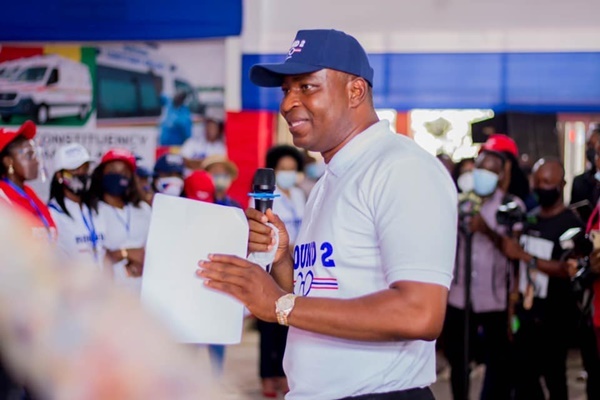
- NPP Ashanti Regional Chairman, Bernard Antwi Boasiako (Chairman Wontumi), has been directed to appear before the CID.
- Attorney General Dr Dominic Ayine ordered his appearance and warned of arrest if he fails to comply.
- Formal charges have been signed against Wontumi.
- The case involves Akonta Mining Limited, reportedly linked to him.
- The company is under investigation for alleged illegal mining (galamsey) activities.
- AG claims investigations were delayed due to missing documents under the previous administration.
The Ashanti Regional Chairman of the ruling New Patriotic Party (NPP), Bernard Antwi Boasiako, widely known as Chairman Wontumi, is expected to face the Criminal Investigations Department (CID) on Monday, October 6, 2025.
This development follows a formal directive from Attorney General and Minister of Justice, Dr Dominic Akuritinga Ayine, who cautioned that the influential party figure would be arrested if he failed to report to the CID headquarters in Accra.
According to the Attorney General, all necessary legal documents and charges against Wontumi have already been completed and signed, paving the way for the next phase of prosecution.
The case stems from ongoing investigations into Akonta Mining Limited — a company allegedly linked to the NPP chairman — over its suspected involvement in illegal mining operations, popularly known as galamsey. The Attorney General also disclosed that the inquiry had faced setbacks due to missing case files, which he claimed were concealed under the previous administration.
Chairman Wontumi, however, has repeatedly rejected any allegations of illegal mining, insisting that his business dealings are legitimate. The Akonta Mining controversy has for years drawn national attention, reigniting debate over how deeply political influence runs in Ghana’s fight against environmental degradation caused by galamsey.
Chairman Wontumi’s impending CID appearance underscores the deep and uncomfortable intersection of politics and environmental destruction in Ghana. For years, the fight against galamsey has been more symbolic than effective — filled with tough rhetoric but limited accountability, especially when powerful individuals are involved.
If the Attorney General’s renewed action against Wontumi marks a genuine attempt to enforce the law, it could signal a turning point in Ghana’s anti-galamsey crusade. But for many citizens, skepticism remains high. History has shown that such high-profile cases often end in political compromise rather than justice.
The Akonta Mining saga is not just about one man’s alleged wrongdoing; it is a mirror reflecting Ghana’s broader governance challenges. Illegal mining continues to destroy rivers, forests, and livelihoods, while those with the means and connections seem to operate above the law. The environmental crisis has reached catastrophic levels, yet the accountability gap persists.
At the heart of this issue lies a moral question — can Ghana truly win the fight against galamsey if political loyalty outweighs national interest? Chairman Wontumi’s case offers an opportunity to test whether the justice system can rise above partisanship. If he is innocent, the process will clear his name; if not, Ghana must show that no one, regardless of political influence, is beyond the reach of the law.
Whatever the outcome, the Wontumi investigation is more than a legal battle — it’s a test of the nation’s commitment to integrity, environmental protection, and justice. The public will be watching closely to see whether this is another performance or the start of real accountability in Ghana’s political landscape.